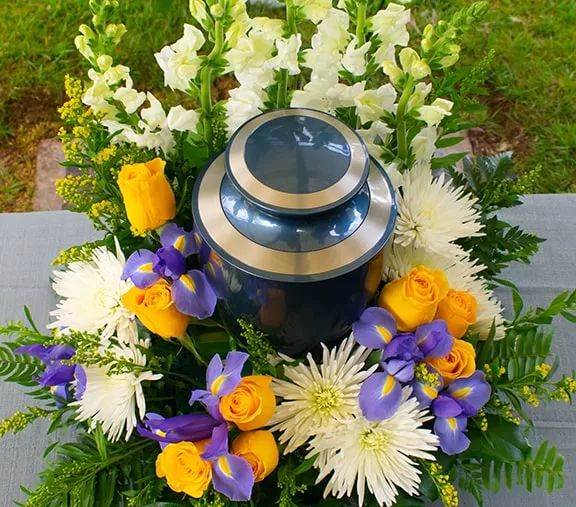Cremation Services

Why Consider Cremation?
Families are choosing cremation services with increasing frequency. These services now account for over 60% (2023) of all funeral services in the United States. Reasons for the growing trend include:
- Environmental concerns
- Personal or spiritual philosophy
- Can be lower cost compared to burial
- Society’s increasing mobility across broad geographic areas
- Growing acceptance among many religions
We assist with cremation services as we do with every aspect of helping you honor your loved one. We will talk with you about final resting place options, scattering, urns, interment, services, and keepsake jewelry if you wish. You have many choices, and we’ll handle whatever arrangements are most meaningful for your family. Should you select cremation, know that Dannel Funeral Home provides cremation in our own facilities, so your loved one never leaves our care.
Cremation is simply another form of disposition. It doesn’t change the value of thoughtful memorials that celebrate life, acknowledge grief, and provide a significant tribute. In fact, these services may be no different than services for burial or interment. In recent years, people have increasingly chosen services tailored to the individual, adding “personality” and meaning for the family. Cremation doesn’t change that.
The Benefits of an On-Site Crematory
It’s important to assure family members that their loved one stays within our care, which is why we have our own modern crematory onsite. “We are committed to providing a higher level of service and will remain vigilant as we serve end-of-life needs,” said Charles Dannel. “It’s an honor and a privilege to be able to fulfill a family’s request for meaningful expression and assist them as they process their grief.”
Because some families wish to witness their loved one’s cremation, our private viewing room is available as a comfortable, secure environment to share as we ensure the families’ wishes are carried out with respect and dignity.

Direct Cremation
We are occasionally asked about “direct cremation” which means that the body is cremated without an opportunity for the family to see their loved one and without ceremony of any kind. At Dannel Funeral Home, our experience is that when families aren’t given the time to say good-bye or the chance to observe meaningful rituals that bring healing, unresolved grief can occur – sometimes years later and with serious consequences. Statistics indicate that there are emotional benefits to families who are given opportunities to honor their loved ones. We want to do what is best for your family. One of the most important things to think about for families considering cremation is that, in most cases, they can still arrange to see their loved one before saying a final good-bye. Some families wish to have their loved one prepared for viewing at a family night or during the service. Cremation doesn’t take away options; it simply provides families with additional choices.
Common Questions about Cremation
Does my religion permit it?
You will want to consult your clergy or religious advisor. While not all faiths support cremation, most religions consider it an important option. For more information about religions that may not approve, visit this article, Religious Perspectives on Cremation.
Is it legal to scatter ashes?
While all states allow scattering of ashes, a permit may be required. Ashes may be scattered at sea three miles or more from land. Of course, permission must be granted from the property owner if you wish to scatter ashes on private property. Your funeral director can guide you regarding reporting procedures and other conditions.
What if family members can’t decide on one location to scatter the ashes?
Your funeral director will talk with you about the option of dividing the ashes so that smaller amounts of remains can be scattered in different locations or given to individual family members for care.
Must a casket be purchased?
While many families choose to purchase a casket for viewing or funeral services, a casket is not required for cremation. If you choose not to use a casket, the deceased is placed in a safe container for respectful handling during the cremation process.